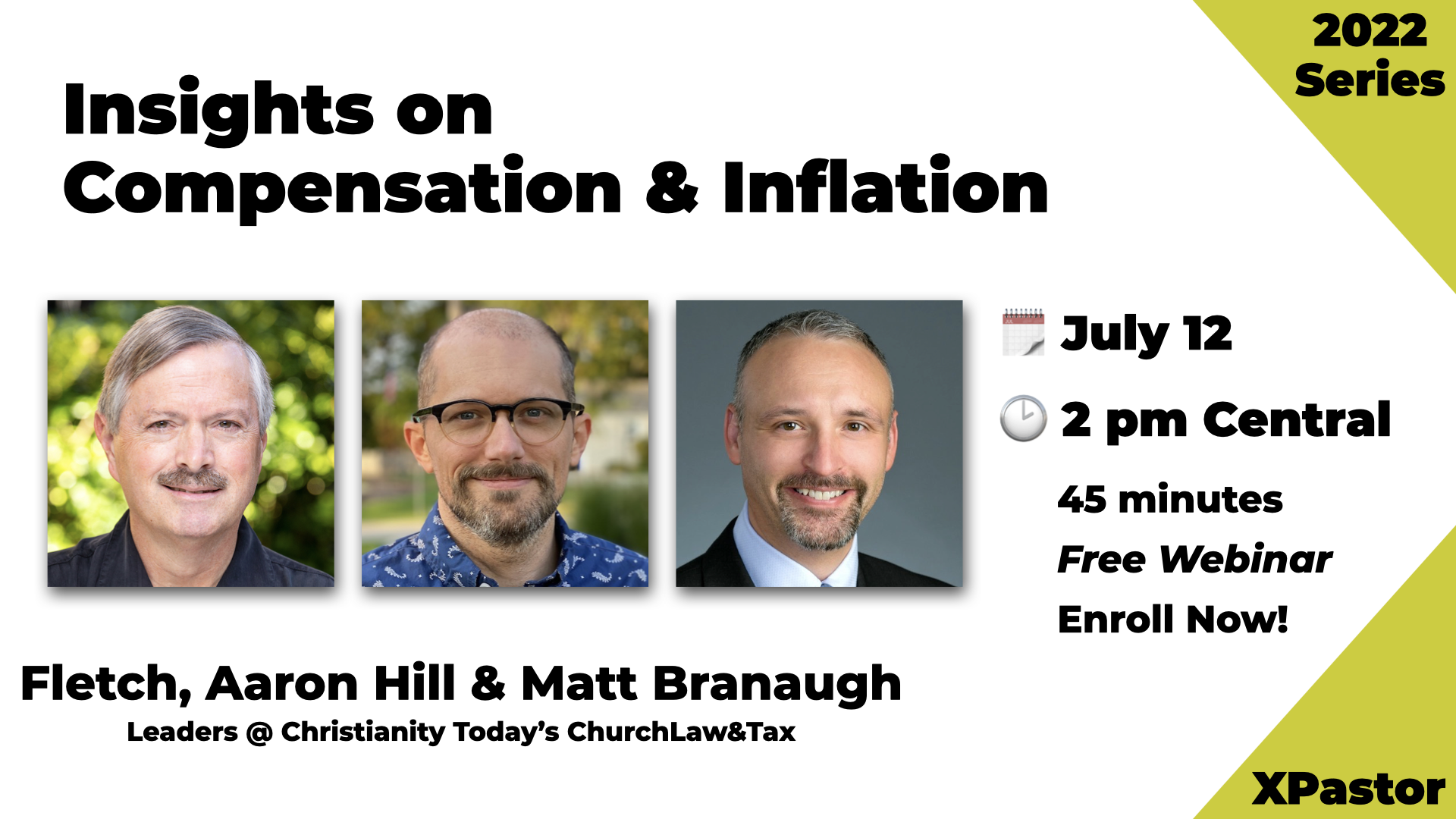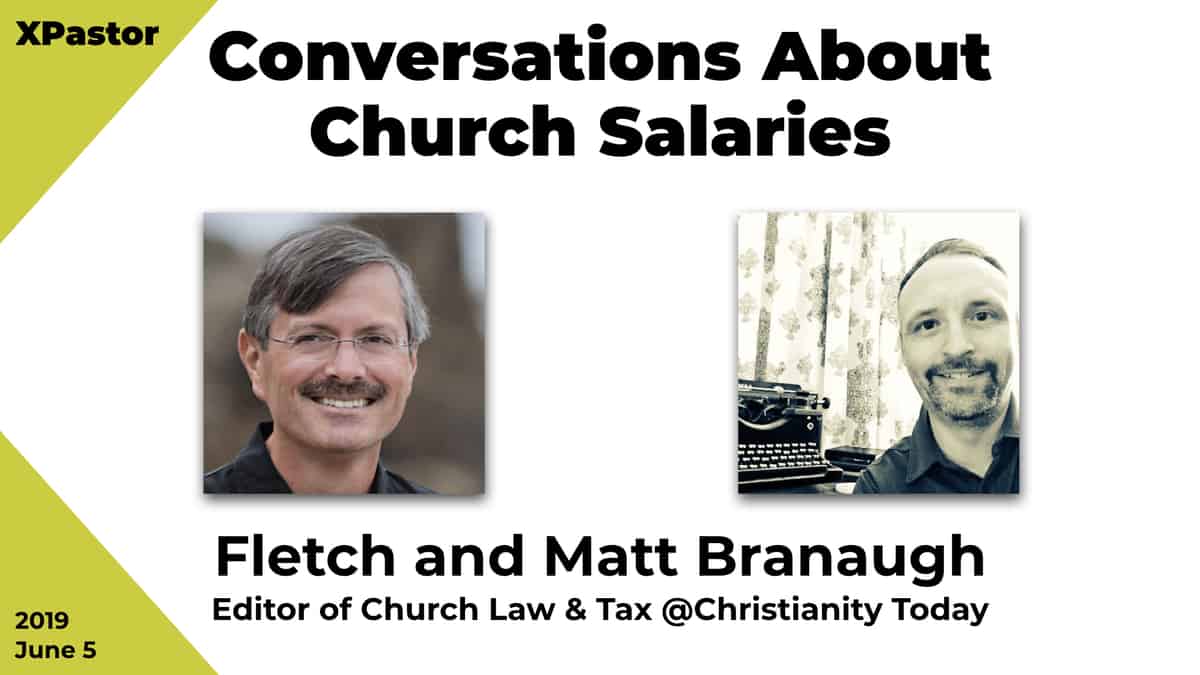Determining how to compensate your church staff is not an easy task and we can easily find ourselves at one of two extremes. We can treat our church staff the same way many businesses treat their personnel: shrewdly, cheaply, and using compensation (or its lack thereof) as a carrot and stick. Obviously, this extreme falls short of the Biblical “Golden Rule,” to “do to others as we would have them do to us.” Not just church personnel teams, but Christian business owners should keep this in mind.
Or, we can treat our church staff as God’s spiritual servants who have no physical needs (or the money to fill them) and compensate them at only a subsistence level. At best, those who hold to this view have good intentions; however, naïve they are. At worst, this is just a spiritualizing of the first extreme.
So, how are we to avoid these extremes? How are we to treat our church staff fairly?
Determining Fair Compensation
The starting pay for staff is likely the most important decision to make—and maybe the hardest.
If starting pay is too low and that is realized too late, giving such a large raise later may be hard for the congregation to swallow. Starting too low might mean the staff member settles for a smaller house or a less desirable neighborhood; raising their salary to a fair level is unlikely to compensate them for the cost or hassle of moving.
If starting pay is too high and the staff member excels, giving a raise and bonus may not be affordable for the church or could result in compensation that doesn’t make sense relative to other paid positions in the church.
So, how do we determine fair pay?
Large Churches
In large churches with multiple staff, there are several approaches to take.
First, look at your org chart to determine where the position falls. Look at the compensation of those on the same tiers, those above, and those below. If you have done a good job with compensation, then determining the compensation for a new hire will be easier. If compensation for the current staff makes no sense when placed on an org chart, then you may want to do some work on that before bringing in a new hire.
Second, look at what other churches pay their staff. There are several studies published each year with salary ranges based on location, size, budget and position. If you know staff at other churches, see what you can learn by calling them.
Third, look at the business world. As a church, you are competing with businesses and nonprofits for qualified leaders. Hire an HR firm to research similar-sized organizations in your region and in other areas of the country.
Smaller Churches
Smaller churches might have a harder time determining fair compensation.
The studies and surveys typically have fewer small churches reporting, especially small churches in rural areas. Still, these may be of help in giving you a general direction.
It is often harder to find businesses to compare compensation with. Some churches use publicly-available compensation information for public school employees. For example, they may determine compensation based on the elementary school principal’s salary.
All Churches
All churches should keep in mind the importance of comparing apples to apples when determining compensation. Employers in the business and nonprofit worlds are required to pay for half of their employees’ Social Security and Medicare taxes. Churches are not required to pay that for their ordained employees. However, it does not go unpaid—the employees must pay it themselves. That amounts to 7.5% of their total income. As a result, when comparing their salary to the salary of any other position, an ordained staff member’s salary should be decreased by 7.5%.
When it comes to tax issues, housing allowance, accountable reimbursement accounts, 403(b)’s, Cafeteria Plans, and more … don’t guess! Consult a CPA who is knowledgeable of special considerations concerning churches and pastors.
Determining Raises
Raises and bonuses can be a great way to reward staff for a job well done. They can be used to celebrate goals being reached, missions being accomplished and the vision being realized … or they can be wasted and arbitrarily given out freely and “fairly.”
Doing the latter is easy. Pick a percentage raise you want to give. Apply it to everyone. Adjourn the meeting. What’s wrong with that? First, it awards everyone equally even though it is unlikely everyone has earned equal awards. Second, it awards those who have supported the mission as well as those who have sabotaged it. Third, it further extends the gap in pay between those at the top and those at the bottom of the organization. The rich get richer and the poor get less richer.
What if we used raises as a way to award those who have done well? What if we awarded a raise as recognition of an expansion of responsibility? This does require clearly defined job descriptions with goals and metrics and other elements to help us determine who has done well, and more importantly, help employees know what they need to do to succeed. The conversations with those who receive raises, as well as those who do not, are great opportunities for coaching and encouragement. However, don’t let those be the only conversations for coaching and encouragement your staff receives!
Bonuses are a type of raise that can be used in the same way. Unlike raises, they are a onetime event—your budget is not impacted for the remainder of the employee’s tenure. If there’s not room in your church’s budget for ongoing raises, be sure to budget for bonuses and then award them when income and employee merit allows. All of what is budgeted does not have to be awarded if no one has been especially worthy. But if they have, use a bonus as an opportunity to celebrate them, and to bring into focus for everyone what it looks like to serve the church well as an employee.
Our culture has serious money problems. We hold with the strictest of confidence how much money we make and how much our house costs, but we boast about the pennies and dollars we save using coupons and finding good deals. There is a negative correlation between income and percentage of income given to charitable causes. And debt is an ongoing reality for nearly every individual, family, municipality—and especially our country.
It’s no wonder that money and staff compensation often cause so much angst for those people in our churches charged with deciding who gets how much.











